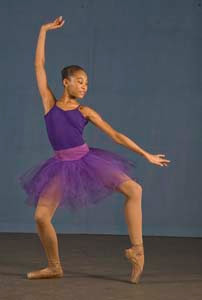Stepping away from the news and business this evening, I poked around on YouTube for a nice Christmas video to share with you. For some reason I started wondering if Sitka, Alaska, where I’d spent 2-3 of my childhood years still celebrates Christmas. I remember a Christmas there that lit up the dark Alaskan winter. [...]![]()
Viewing: Blog Posts Tagged with: Swan Lake, Most Recent at Top [Help]
Results 1 - 3 of 3
Blog: How To Be A Children's Book Illustrator (Login to Add to MyJacketFlap)
JacketFlap tags: Pictures worth a thousand words, Sitka, Mark Mitchell, Swan Lake, carol, online course on children's book illustration, Children's book illustration, New Year, christmas, nature, home, Alaska, Add a tag
Blog: OUPblog (Login to Add to MyJacketFlap)
JacketFlap tags: Music, History, ballet, oscars, ballerina, black swan, swan, academy awards, Tchaikovsky, swan lake, *Featured, TV & Film, Theater & Dance, Roland Wiley, wiley, balletmaster, musicology, Add a tag
By Michelle Rafferty
I’d argue our Black Swan “fever” peaked at Jim Carey’s SNL performance, but we might see a resurgence this weekend at the Oscars. In anticipation I contacted Roland John Wiley, author of Tchaikovsky and Professor of Music at the University of Michigan, for his thoughts on his subject’s recent omnipresence. Turns out, Tchaikovsky hasn’t always been taken seriously in the academic community. Here, Wiley explains the trappings of music snobbery – and why Tchaikovsky’s popularity among the “muggles” is no reason to discount his brilliance. Oh, and, he dishes on the original Swan Lake ballerina. (Dra-ma!)

An even more recent take on Tchaikovsky - Jim Carrey dances "Black Swan" on Saturday Night Live (c) NBC
Me: How do members of the academic community (like yourself) feel about Tchaikovsky’s resonance in popular culture?
Wiley: I may be different from most ‘members of the academic community.’ Not only does Tchaikovsky’s music speak to me, I also find the conceptual and technical aspects of it operating at a very high level. He was a very fine composer, an assessment that my academic colleagues increasingly acknowledge. Were we to go back 40-50 years, especially in light of the fashion then for early music and the influence of German musicologists who emigrated to this country after World War II (without which our musicology would be much the poorer), we would find a distinctive aloofness about Tchaikovsky in academic circles, which I sensed myself as a graduate student.
Me: Is his popularity with the general public what makes him taken less seriously in academia (sort of the way an indie band loses credibility when it becomes popular)?
Wiley: In a word, yes. But this is changing with the flourishing of popular studies in academia, which are having the effect of implying that so-called serious music is elitist.
Me: And are we (the general public) misusing or misconceiving his work in any way? For example, is a film like Black Swan blasphemous to a true Tchaikovsky fan, like yourself? And what does the academy say?
Wiley: I sense no misconception in the public acceptance of Tchaikovsky, but the need for fairness in distinguishing a truthful aversion to his music from a purely snobbish one. The misconception is that it’s correct to persist in the latter. I don’t think academia as a corporate entity has an opinion about Black Swan. To me it seems, like any other artwork, the product of its creators’ fantasy, and as such owes nothing to the mundane truth.
Me: Black Swan is all about the behind the scenes rivalries. What about the original Swan Lake
Blog: I.N.K.: Interesting Non fiction for Kids (Login to Add to MyJacketFlap)
JacketFlap tags: poetry, dance, doctor, susan kuklin, Marilyn Nelson, Degas, Swan Lake, age appropriate George Balanchine, Add a tag
In keeping with this month’s theme – using our books in the classroom – I’d like to share experiences about talking up/talking down to kids in publishing and the classroom.
When the question of age appropriateness arose on our new Web site, http://www.inkthinktank.com/, I wish I had listed a broader age range. Some of you already have and hats of to ya! Material that is strong and fun and well presented is manna from heaven to a creative teacher. Kids, young and old, are savvy creatures who can handle big vocabulary and big ideas.
Step back: For years I’ve been trying to capture the voices of the participants who rule my subjects. Early on, in a book for young children called When I See My Doctor, I included the words “stethoscope,” “otoscope,” “sphygmomanometer,” and “hemoglobinmeter.” The copy editor wanted these words deleted because they were too difficult for kindergarten-age children. But four-year-old Thomas, the subject of the book, learned them from his doctor and shouted them proudly into my tape recorder.
 It was a bit nerve wracking to argue with an editor because I was new to the field, didn’t have kids, and never studied early childhood education. But I trusted Thomas, my subject. Later, at school visits, children called out the words, teachers beamed, and I felt vindicated. Sophisticated language, one teacher said, encouraged the children to be students.
It was a bit nerve wracking to argue with an editor because I was new to the field, didn’t have kids, and never studied early childhood education. But I trusted Thomas, my subject. Later, at school visits, children called out the words, teachers beamed, and I felt vindicated. Sophisticated language, one teacher said, encouraged the children to be students.
Jump to now: A few weeks ago I had the pleasure of doing a presentation with Marilyn Nelson, the poet whose picture book I recently illustrated. I had invited her to watch me shoot her book, using students from the Dance Theatre of Harlem as my models, but scheduling didn’t quite work out. Now that the book is published, we were asked to appear together in front of a large group of students. I was anxious. How would a classroom filled with both boys and girls react to my gals in tutus? What helped the most was the teacher. She greeted me with an enthusiastic bear hug and a huge – I mean huge – smile. That alleviated trepidations until I saw the kids. The first to arrive were the boys – big, boisterous boys who spread out in the front rows. Gulp! This is a book about ballerinas for goodness sake! Too late now to back out. Besides Marilyn had just arrived looking fabulous. There were more hugs as Marilyn whispered, “How shall we do this?” If she didn’t know we were in deep do-do land.
“You go first.”
“No, you go first.”
“No, you go first.”
Marilyn, the AUTHOR, went first. She described how and why she wrote the poem and revealed a few literary secrets, such as a riff on Yeats. [“Beautiful ballerina, you are the dance.”] She read her poem to a rapt audience and talked a little more.
My turn! Following Marilyn Nelson may have been a mistake. But I have a few secrets of my own, ones that surprisingly complimented her poetic structure. Showing photographs, I pointed out my secrets, historic balletic points of reference. There’s an homage to Swan Lake, to Degas, and to George Balanchine.
 [The photograph above is a typical Balanchine shape.] There were no giggles, squirms or snickers from the audience. Instead, there were great questions and a very happy teacher. Oh, did I tell you who made up the audience for our picture book? Students at the University of Connecticut.
[The photograph above is a typical Balanchine shape.] There were no giggles, squirms or snickers from the audience. Instead, there were great questions and a very happy teacher. Oh, did I tell you who made up the audience for our picture book? Students at the University of Connecticut.
What experiences have you had, dear teachers, librarians, and colleagues, breaking the "age appropriate" barrier?
Jete’ to future: The next visit will be with third graders. I will not change one word in my presentation.



thanks for sharing. This is one of my favorite carols .
Love this! Thank you for sharing – I can’t imagine you having a bad week. You are the most upbeat, and encouraging person I know. Hope you have a blessed Christmas. Big hugs from Houston!
Oh, Rebecca I meant it was just a terrible week for the country, with the Newtown shootings — I’ll still take the hugs, though. Thank you, and Merry Christmas to you and your family.
Merry Christmas, Mark , and happy new year.
I understand how you feel and the school shootings and funerals was a very hard time on all of us. Hope we don’t hear such terrible news ever again.
Thanks for sharing the videos. and wish you a wonderful year full of happy events.